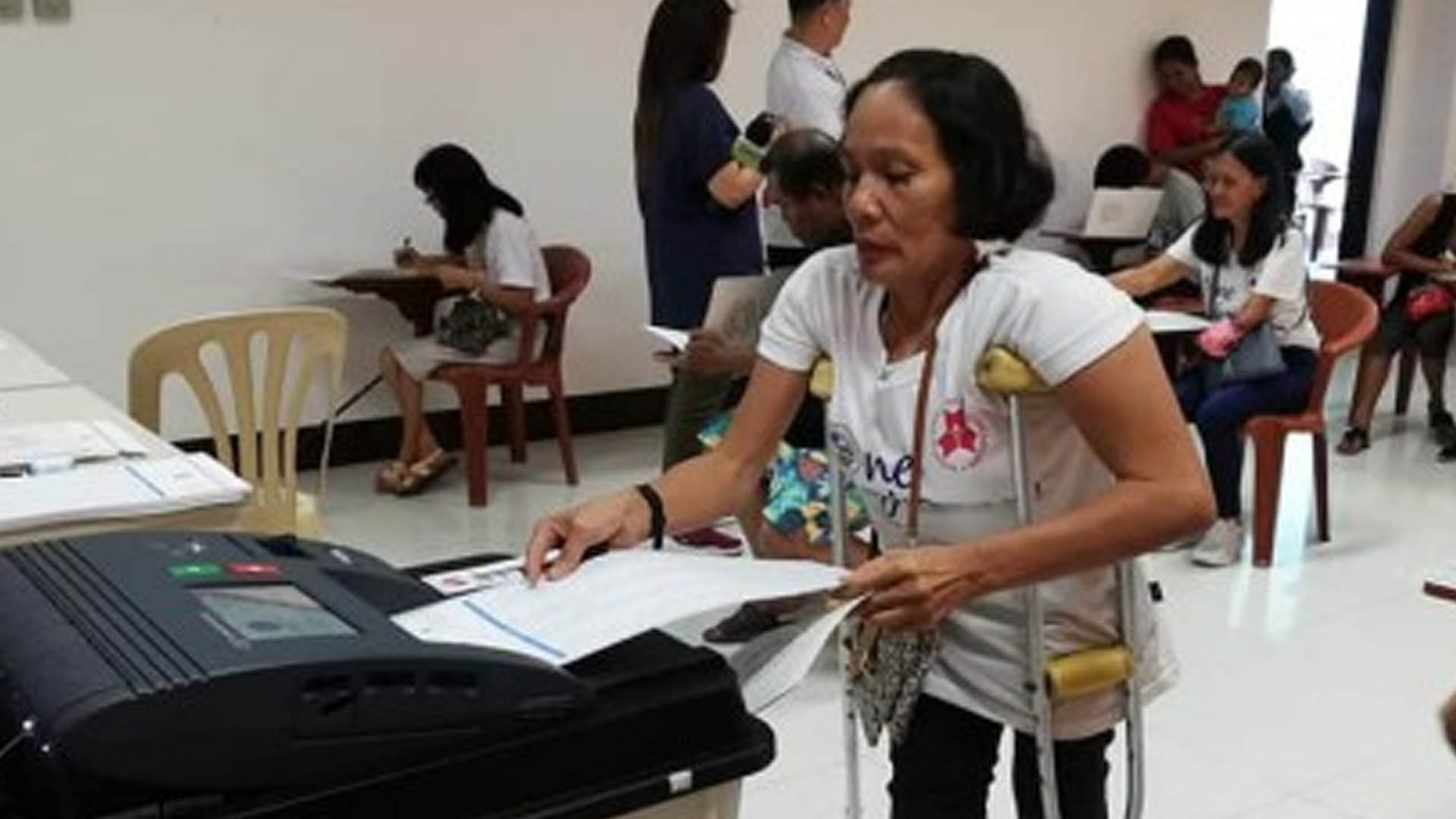Around 200 persons with disabilities (PWDs) from the city and Iloilo province took part in the one-day simulation voting for their sector facilitated by the Commission on Elections (Comelec) at the Central Philippine University (CPU) here on Tuesday.
Comelec Commissioner Al A. Parreño said the commission will look into the improvements of their mechanics, systems, and procedures for the PWDS to be able to “vote freely”.
The simulation exercise started with a briefing about the rights of the PWDs before they were ushered to the nearby precincts to cast their votes.
They followed the process of checking their names with the list of voters until the entire process of casting of votes was completed.
Parreño said they go around the country to conduct the simulation exercise.
On Jan. 23, they will be in Tacloban City and then in Butuan City and Sulu in succeeding days.
By listening to around 800 to 1,000 PWDs, he said they hoped to be able to make recommendations to improve their conditions when casting votes.
Lawyer Dennis Ausan, Comelec regional director for Western Visayas, said the activity formed part of the preparations of the commission for the 2022 elections.
“The commission in pursuance to its advocacy to promote the interest of our PWD brothers and sisters had scheduled a simulation of voting exclusively for them,” he said.
At the end of the one-day simulation, the commission talked with associations of the PWDs for their comments, suggestions, and recommendations on enhancing their voting experience for the former to take cognizance.
The commission particularly would like to take cognizance of the PWDs whose disabilities do not manifest or those who appear to be normal but inside they have disabilities.
He added though that Comelec has “done great strides” to address concerns of PWDs. In 2019, they implemented the emergency accessible polling place where the electoral board assisted PWD voters who could not hurdle even just two or three steps in order to go the voting precinct.
“The objective really of the commission is to touch-base with the PWDs. If we can have 100 percent of them addressed so much the better,” Ausan added.
Lilibeth Cajomocan, a person with disability due to polio, from Poblacion 3, Tigbauan found voting faster and easier during the simulation.
She added that it would be better if there is a dedicated polling precinct where PWDs can cast their votes. (PNA)







